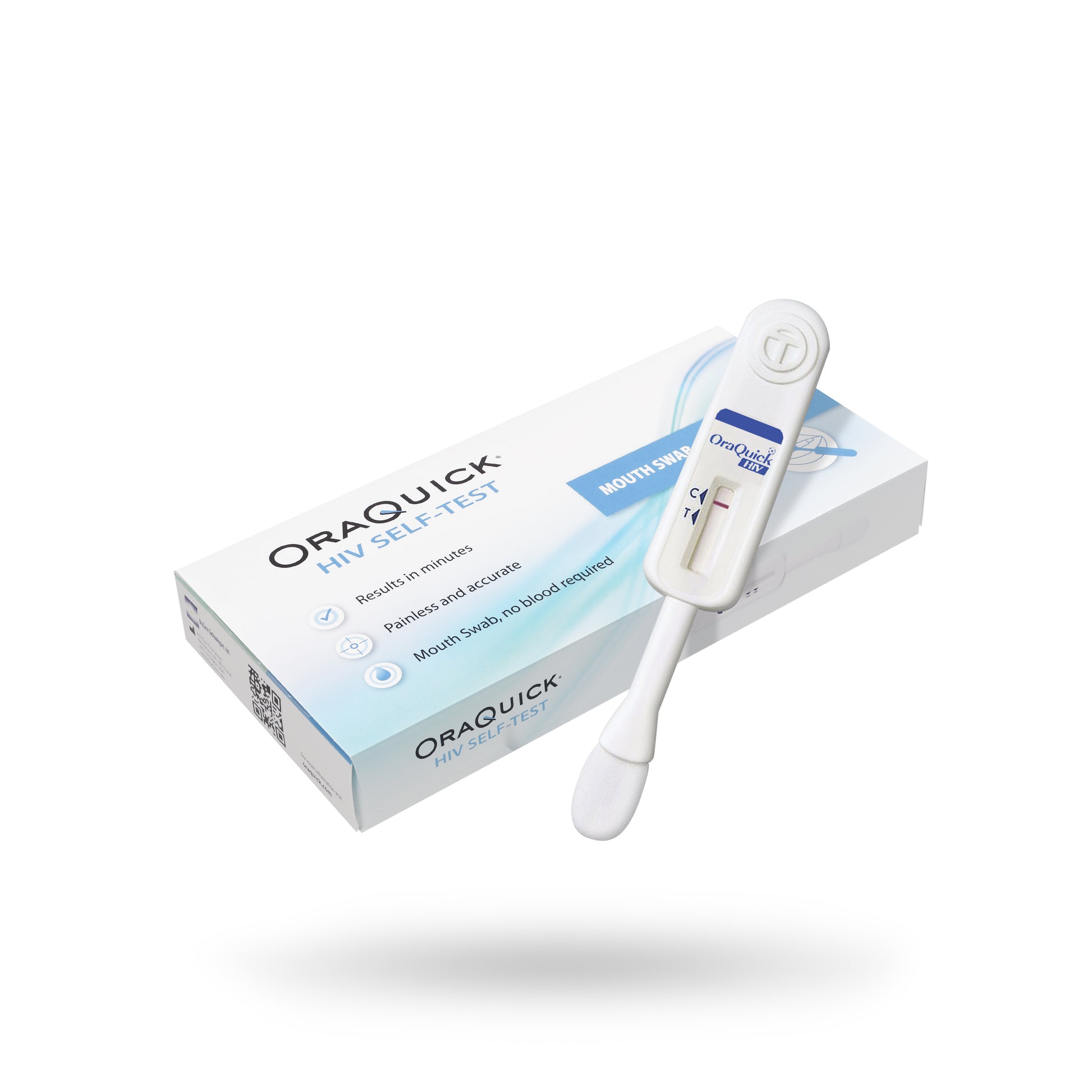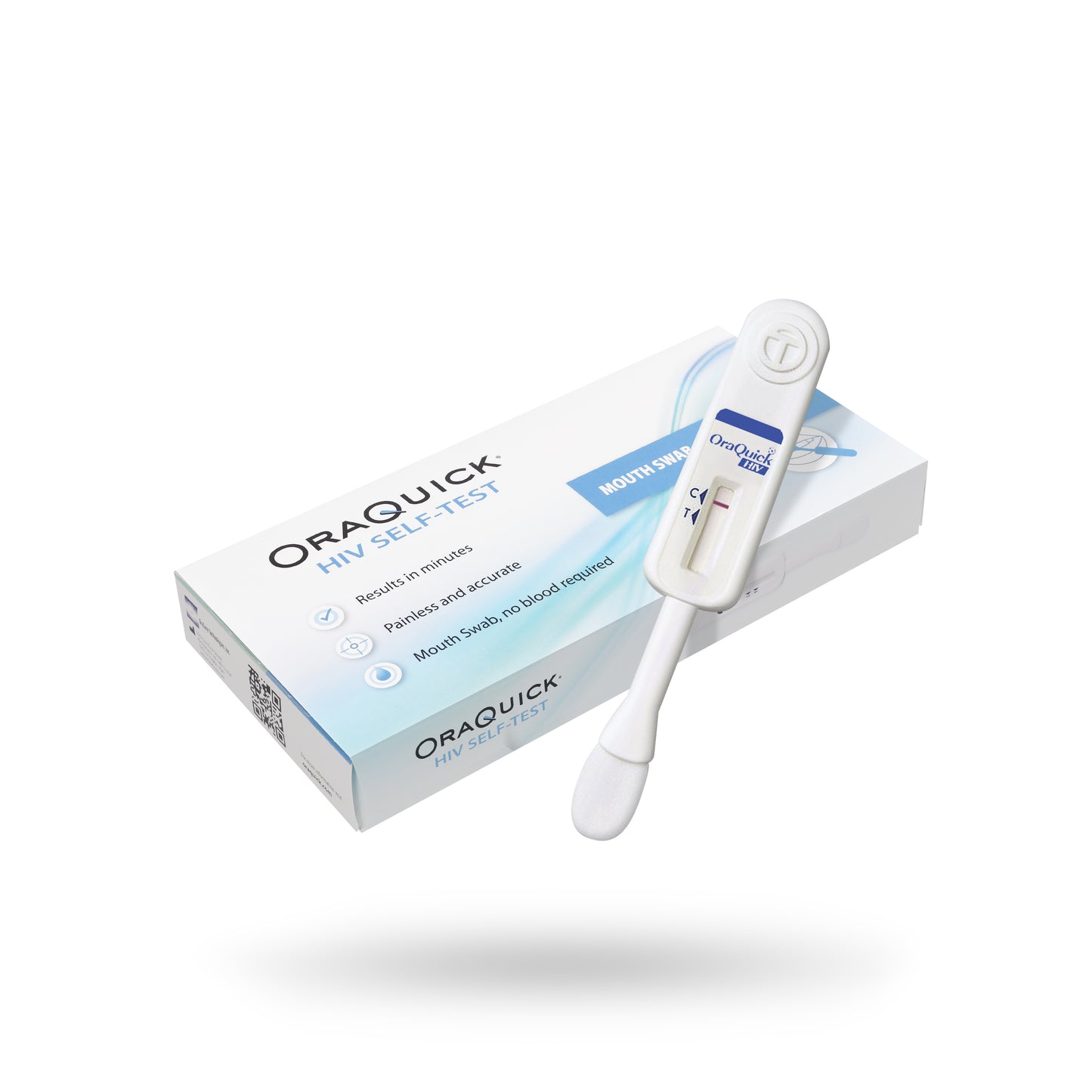Staying HIV Negative
Safe sex – Play safe. Using a condom is the easiest way to protect yourself from HIV and other STI’s.
Safer sex – Make choices that are right for you and be confident to ask for the sex that feels rights for you.
Safest sex – Take responsibility for your sexual health. Unless you’re absolutely sure of your own and your partner’s HIV status, safe sex is your best choice.
How can I stay negative?
Play Safe - Condoms are the easiest way to protect yourself and others from HIV infection and other STI's (Sexually Transmitted Infections) as they provide a barrier and stop another person’s body fluids mixing with your own.
Penetrative vaginal and anal sex, carry the highest risk. Male or female condoms offer the best barrier protection if they are used correctly and don’t split or slip off. Some condoms come ready lubricated, but you probably want to use an additional lubricant (lube), especially for anal sex. If you are using latex condoms make sure you don’t use an oil based lube (Vaseline, baby oil etc) because it damages them and can make them ineffective. You’re best to use a water based lube.
You need to use a new condom for each partner if you are having sex with more than one person and it’s also advisable to change the condom after 30 minutes during a long session.
Oral sex is also penetrative sex but has a much lower HIV risk unless you have cuts or sores in your mouth or bleeding gums. You might want to use a flavoured condom or dental dam.
Sex toys, dildos, vibrators, in fact any object entering a person is also penetrative sex and could carry infected body fluids. If you are sharing toys you need to either wash them thoroughly with a specialist cleaning agent or soap and hot water, or use a new condom to cover them between each person they enter.
Sex without penetration is ‘safer sex’ and carries a lot lower risk. Mutual masturbation, frottaging and erotic massage are types of non-penetrative sex that lots of people enjoy. Be creative.
Condoms
The NHS makes free condoms available to everyone - male or female - but availability, brands and the quantities available vary in different areas of the UK.
Free condoms are generally available from:
- Community Contraception Clinics (Family Planning Clinics).
- NHS Sexual Health (GUM) Clinics.
Some people don’t like to use condoms, but they’ve come a long way in recent years. You can get condoms in different sizes, flavours and with added features to increase pleasure and heighten sensation. Remember condoms are the best way to protect yourself and others from HIV infection and other STI's, so if you think you don't like using condoms, it's worth trying out some different varieties and seeing if you can find one that is right for you.
PrEP
PrEP is a drug that can be taken by HIV negative men or women before sex and reduces the risk of getting HIV, a similar concept to the contraceptive pill stopping pregnancy in women.
The medication is a tablet called Truvada which is an antiretorviral drug commonly used to treat HIV. It works by having enough drug in your blood to block HIV if it gets into your body so it doesn't get a chance to infect you. It doesn't protect against other STIs though.
PrEP can be taken regularly or only when needed (2 tablets within 24 hours before having sex and a dose 24 and 48 hours after) Both methods are found to be effective, but are dependent on taking it correctly, otherwise it may not work.
There is a lot more information about PrEP here.
PrEP is available on the NHS in England from sexual health clinics and can also be bought from some online pharmacies. This website lists a number of online pharmacies that have been checked and verified: iwantprepnow.co.uk
Making confident choices...
Even when you know the facts, it’s not always easy to make sure you have safer sex and it can be more difficult to play safe if you’ve had alcohol or taken drugs. You might find it easier to talk about using condoms or having safer sex before the situation arises, as it can be harder to discuss once sex has started.
It does matter if someone you have sex with doesn’t mention condoms or HIV. A partner who does not know their status may have HIV without knowing it, or if they do know might find it difficult to tell you. Unless you’re absolutely sure of a partner’s HIV status you are safest to use protection so feel confident in talking about it and making the choices that are right for you.
You have the right to make your own choices and for people to respect them. Say ‘yes’ to the sex you do want and ‘no’ to the sex you don’t.
And don't forget, if you take risks, test regularly. #TakeControlOfYou 

Paywhirl
UK - Receive Test Every 3 Months
Share

